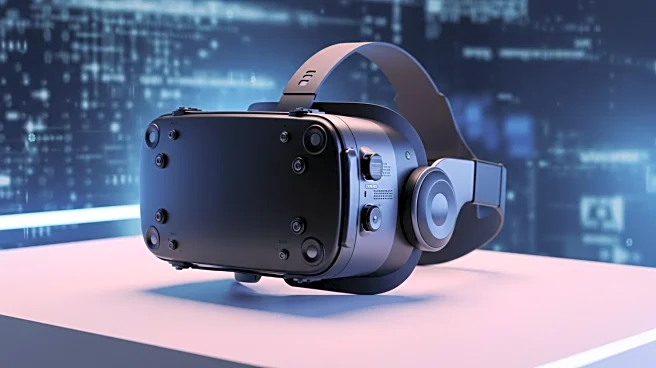What is the story about?
What's Happening?
Lynx, a French startup known for its mixed reality headset Lynx R1, has released an open-source 6DoF positional tracking system designed for Android headsets equipped with Qualcomm chips. This system utilizes the ORB-SLAM3 algorithm, adapted to run efficiently on Android devices by leveraging the hardware acceleration capabilities of Qualcomm's Hexagon DSP. The open-source library processes 640x400 camera inputs to deliver a 6DoF pose at 90FPS on Snapdragon XR2 Gen 1 chipsets, which are used in devices like Quest 2, Pico 4, and Lynx R1. This development aligns with Lynx's commitment to openness, providing an alternative to Qualcomm's closed-source tracking system.
Why It's Important?
The release of an open-source 6DoF tracking system by Lynx could significantly impact the virtual reality industry by offering smaller companies and developers a cost-effective and customizable solution for positional tracking. This move may encourage innovation and competition, as developers can modify and improve the system to suit various applications. Additionally, it supports the broader trend towards open-source solutions in technology, which can lead to more transparent and collaborative development processes. Companies that require open-source software for security or customization reasons stand to benefit the most from this release.
What's Next?
As Lynx's open-source tracking system becomes available, it is likely that developers and smaller VR companies will begin integrating it into their products. This could lead to a wave of new applications and devices that leverage the system's capabilities. Additionally, the open-source nature of the system may prompt further enhancements and adaptations by the developer community, potentially leading to improvements in tracking accuracy and performance. Major players in the VR industry may also take note of this development, possibly influencing their own strategies regarding open-source technologies.
Beyond the Headlines
The introduction of an open-source 6DoF tracking system raises important questions about the balance between proprietary and open-source technologies in the VR industry. While open-source solutions offer transparency and flexibility, they also require a community of developers to maintain and improve them. This development could lead to a shift in how VR companies approach software development, potentially fostering a more collaborative environment. Additionally, the use of open-source software in VR could have implications for privacy and data security, as users and developers gain more control over the software's functionality and data handling.
















